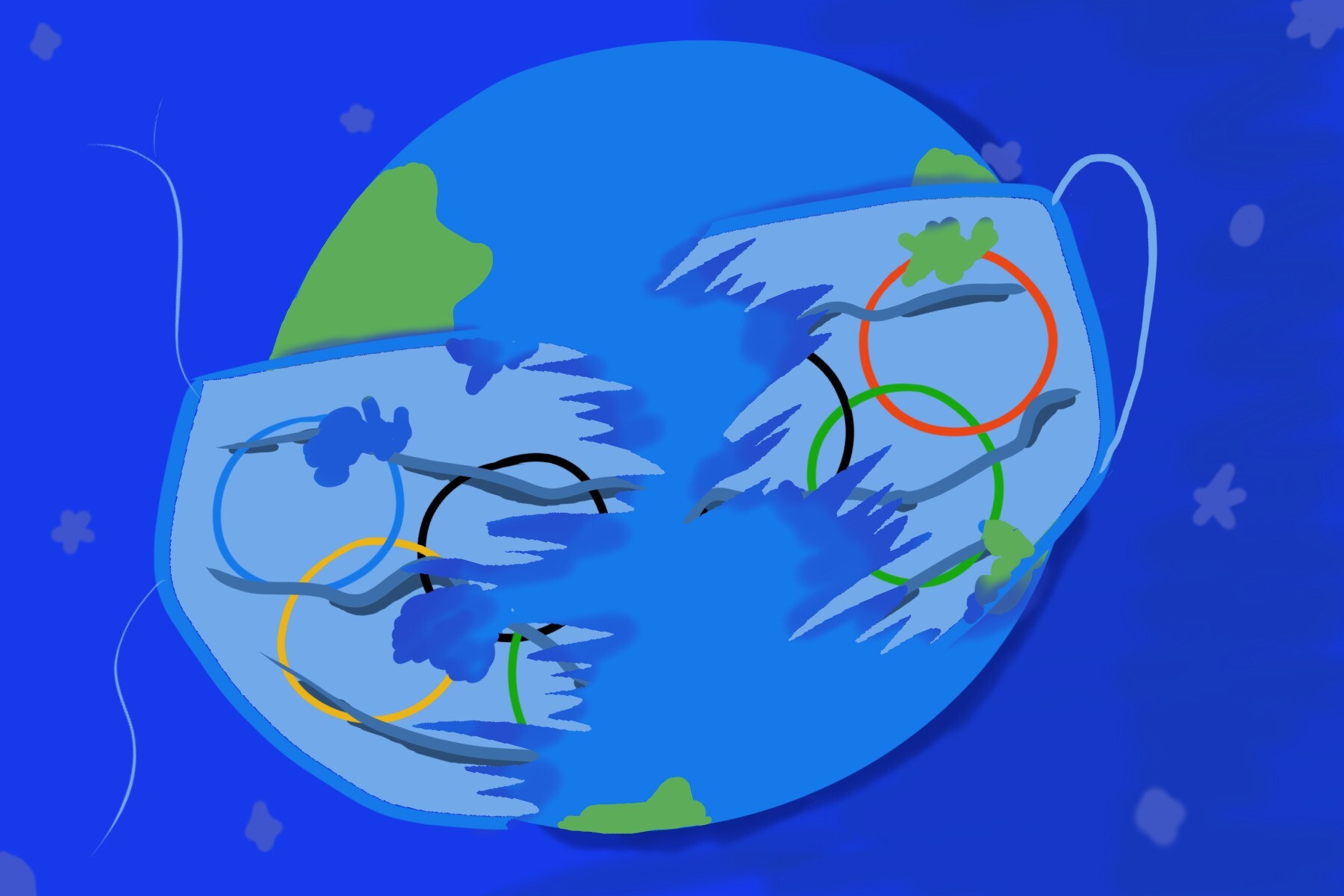The Olympics felt different this year. The usual parade of nations marched, with thousands of athletes beaming with pride. They represent the world’s best. Of course, there was tension in the air along with the excitement. News anchors provided disquieting commentary on certain nations. When Afghanistan emerged, the American announcers made a remark regarding the oncoming anniversary of 9/11 (not the most sensitive statement). Celebrations from the Chinese team were juxtaposed with reports of the CCP’s numerous human rights abuses. The same went for Cuba and its ongoing protests. Even in the neutral field of Olympic competition, global strife remains omnipresent.
The Olympics for this year felt particularly inappropriate. The Tokyo competition was delayed from 2020 due to the COVID-19 pandemic, with the International Olympic Committee (IOC) hoping the disease would ease its grip on Japan. However, the nation is still in a state of emergency, and the people overwhelmingly oppose the games occurring. Furthermore, the games have been plagued with scandal.
With all these factors in mind, should the games even have been held this year, during a pandemic that has exacerbated numerous crises that threaten their optimistic message? Of course, this begs a larger question. What role should the Olympics play in an era of polarization and inequality, if any? How could they possibly represent a united world where disunion is increasingly the norm?
First held in Athens in 1896, the modern Olympics were an intimate affair. It featured 300 athletes from a dozen countries competing in multiple events. The nationalism that dominates today’s proceedings was less emphasized, with most athletes being well-off students and Greek nationals. The games expanded exponentially over the following decades, but a core idea remained — the idea that various nations, no matter how poor or disadvantaged, could compete on an equal footing for individual glory, the greatest equalizer. Through wars and disasters, the Olympics and its apolitical globalism supposedly remain intact.
Despite declarations of neutrality, powerful groups have consistently used the Olympics for political gain. The first and most important example of this is the Berlin Olympiad in 1936. Here, Hitler and his regime used the spectacle of the event for nationalist propaganda. The elaborate proceedings exerted Germany’s “soft power” as the idyllic fascist state with a quiet emphasis on supposed Aryan superiority. The worst part is the ploy worked. Most competing nations bought into the German facade, which likely contributed to the complacency that allowed Hitler to usher in the darkest chapter in modern history. These Olympics were political in that they serviced a specific nation’s agenda — the most malevolent agenda possible.
In addition to nationalist propaganda, the supposedly neutral grounds of the Olympics have served as a battleground for ongoing global conflict. The U.S. and nearly 70 allies boycotted the 1980 Olympics in Moscow due to the Soviet Union’s invasion of Afghanistan the previous year. In retaliation, the Soviets and allied nations boycotted the 1984 Games in Los Angeles. The Olympics was yet another proxy conflict in the seemingly unending Cold War as the two superpowers and their spheres of influence made statements over neutral ground. Overall, politics and the games are frequently intertwined, as nations use the massive platform to push agendas or make statements. This practice continues into the current era.
Two key divisions undermine the Olympics, the first being the divide between democratic and authoritarian nations. The decay in democratic institutions continues unabated, with many countries turning to authoritarian tactics to maintain control. The Winter Olympics are set for next year in Beijing, China’s second hosting opportunity. However, cries for a boycott are increasing due to the government’s brutality, especially toward its minority Uyghur population. Furthermore, the Olympics continue to spotlight cruel regimes like Saudi Arabia and Russia as athletes win medals on their behalf. These issues are but a continuation of previous patterns. The Olympics are not just a clash of athletes, but one of ideology.
The Olympic Committee now faces a significant conundrum in solving these conflicts. They maintain a firm policy of neutrality, with most political statements supposedly banned from the proceedings. If they were to directly violate this policy and condemn a nation and its actions, it could uproot the Olympics’ credibility as a global equalizer. However, if they remain silent on political crises, they could unintentionally provide a platform and sow complacency for harmful governance, as occurred in 1936. As the conflict between human rights and oppression continues, can the Olympics afford to stand on the sidelines?
A second inequality contradicts the Olympics’ message of global unity — one of wealth. Nearly all of the top medal recipients at Tokyo are wealthy nations, with the U.S. in the clear lead (the United States also happens to boast Earth’s largest economy). Meanwhile, poorer nations in places like Africa and Asia win few to no medals, not achieving their dreams of glory. Furthermore, the countries that host the Olympics are limited to those who can afford it, with Rio 2016 and Beijing 2008 being the only games held in developing countries. It appears the wealthiest nations hoard much of the glory in the Olympics, as they can afford the robust infrastructure without going bankrupt.
The Olympics are just one of many indicators of wealth inequality between nations. Currently, the vast majority of COVID-19 vaccines, much like the Olympic medals, have been reserved for wealthy countries while poorer nations receive very few. Even during a global crisis, the same strong states hoard while others are left in the dust. The Olympics still function in that they represent the world at large, but with that, they represent the world’s most contemptible qualities: toxic politics, malevolent regimes and massive inequality. Should the Olympics still exist if they just platform the world at its worst?
The answer is yes, as I believe they can also represent us at our best. The greatest moments of the Olympics are defined by people. The turning point of the 1936 Games was the victory of Jesse Owens in the track and field event. An African American making history directly contradicted Hitler’s ideology, which was subtly promoted throughout the event. It was an individual achievement, showing that human excellence can overcome nationalistic bigotry. In the 21st century, when people discuss Simone Biles and her “GOAT” status, they do not often consider her representative of American excellence, but rather her own. The stories of triumph trace back to intimate portraits, not broad propaganda. This has been the single constant, no matter the nation that hosts or competes. This constant is one the IOC should emphasize.
The Olympics needs to reduce the role of “countries” and uplift that of “citizens.” We do not adhere to a flag, but to ourselves and one another. Perhaps, the IOC can move away from national teams, and instead, allow teams with members from around the world. These members can train together, learn about one another, and ultimately work toward glory. It is a grassroots effort to promote global understanding, rather than apprehension. The divide of politics falls away as Americans and Russians play on the same side, establishing friendships to last a lifetime. The divide of wealth falls away as everyone has a fair shot, with no nation dominating the funds.
The idea of multinational teams may be fantastical and a logistical nightmare that uproots over a century of tradition, but it epitomizes what I believe the Olympics should be. A game of people, the people of struggling nations waving their flags and beaming with pride despite what is happening on the outside. This resilience is what makes humanity so special, and is what the Olympics, as humanity’s games, should represent.

















